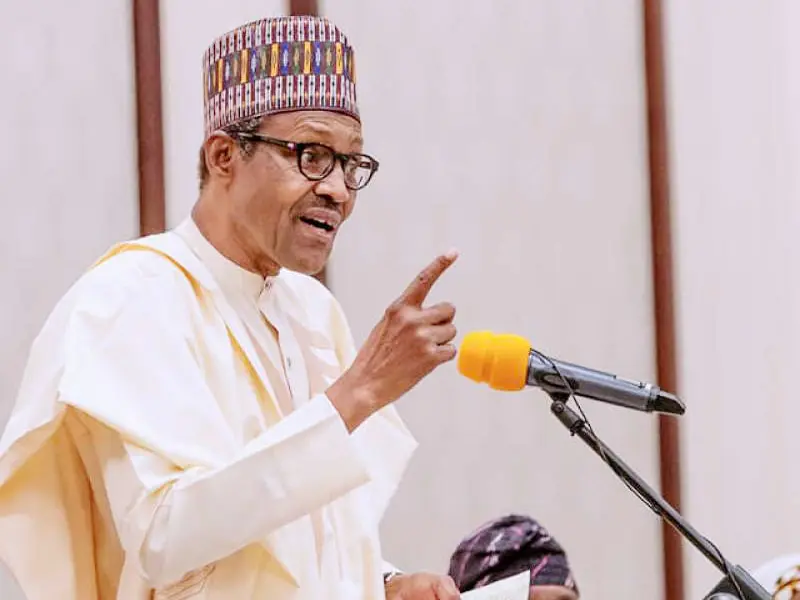The President of Nigeria, Muhammadu Buhari has disclosed that the government which he currently leads is fully committed to eliminating the use of petrol and diesel generators in the country by 2060.
Speaking during the U.S.-Africa Leaders Summit in Washington DC, Buhari said that the decision has necessitated the deployment of renewable energy, particularly solar at an unprecedented scale.
The President stressed that the Nigerian government has embarked on several reforms, one of the best in Africa, on mini-grid regulations as well as the integration of renewable energy into the national grid.
‘Our Federal Executive Council approved the plan earlier this year and adopted it as a national policy. As part of the plan, we intend to completely eliminate the use of petrol/diesel generators by 2060 and therefore need to deploy renewables, particularly solar, at an unprecedented scale. For instance, the Energy Transition Plan requires that 5.3 GW of Solar be deployed annually until 2060 to achieve our targets.’
Read Also: 2023: Unite, If You Want To Win Elections, Buhari Warns APC
According to President Buhari, ‘as part of the National Renewable Energy and Energy Efficiency Policy, we set the vision 30:30:30 which aims at achieving 30GW of electricity by 2030 with renewable energy contributing 30 percent of the energy mix. Last year, Nigeria became the first African country to develop a detailed Energy Transition Plan to tackle both energy poverty and climate change, and deliver SDG7 by 2030 and net-zero by 2060.’
He disclosed some of the reforms which have positively impacted the energy sector in Nigeria.
‘Our aggressive power sector reforms have resulted in cost-reflective tariffs in the power sector for the first time since privatization. Under the Nigeria Electrification Project, over 4 million people have been impacted through solar mini-grids and solar stand-alone systems. With respect to hydro, the Zungeru hydropower project is nearing completion and will add 700MW in capacity to the grid.’
While also stressing the resources that the administration has committed towards the realisation of the vision, the Nigerian leader, however, called for “considerable financial and technical support” to achieve the goals.
‘For instance, our analysis shows that delivering the Energy Transition Plan requires $1.9 trillion in spending up to 2060, including $410 billion above business-as-usual spending. This additional financing requirement translates to a $10 billion investment needed per annum. Between 2000 and 2020, just $3 billion per year was invested in renewable energy in the whole of Africa.
‘Consequently, the $10 billion per year target of our Energy Transition Plan represents a significant scaling of current investment flows and we need support from the U.S. to mobilize the needed resources. It is important to note that for African countries, the cost of finance and perceived investment risk remains significantly higher than for developed economies despite vast improvements in stability and governance. For our clean energy market to scale, Nigeria and more broadly Africa needs concessional, low-interest capital-led investments.
‘Furthermore, we believe that the Nigeria Energy Transition Plan and the net-zero compliant investment pipeline we have developed is prime for a just energy transition partnership like the one offered to South Africa and, more recently, Indonesia. Nigeria too seeks support from the US to be included in the G7’s Climate Partnerships List for the co-creation of a Just Energy Transition Partnership.’
President Buhari also called on US businessmen and the global community to tap into the innovation and potential returns in Nigeria’s enormous market which is yet to be fully optimised.

